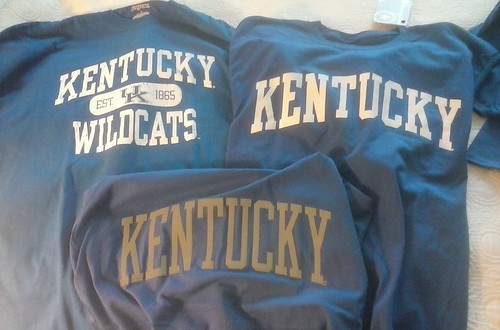This week, I’m blogging and launching new web resources based on my experience in October as the Duvall Leader in Residence at the University of Kentucky’s Center for Leadership Development (CFLD), part of UK’s College of Agriculture, Food and Environment.
Monday, I blogged about one of my workshops regarding Democratizing Engagement. Specifically: has the Internet democratized community, even political, engagement. Yesterday, I launched a new web page about online leadership.
Today’s topic: things I learned while in this program, as well as before, during and after presenting in my hometown in Henderson, Kentucky for the Kentucky Network for Development, Leadership and Engagement (Kyndle), serving Henderson, McLean, Union and Webster counties in northwestern Kentucky:
- People under 30 love Instagram. When I asked University of Kentucky students, and a small group of high school students, what they were using, they said Twitter and Instagram more than anything else. Snapchat also was always mentioned, though not as widely used. Periscope got mentioned a few times as well. Facebook is long gone as a regularly-used tool by the students I addressed.
- Different communities, neighborhoods and cultures use vastly different online communications tools: I thought Topix, an online forum founded in 2002, was long gone, like Cupertino’s first official online community for its citizens, built on FirstClass. But, no – Topix still very popular in some communities, probably because of the ease of anonymity in participating in its online discussions/debates.
- I’m not the only one that thinks nonprofits are using social media too much as an old-fashioned advertising tool and not nearly enough as an engagement tool – this article in the Chronicle of Philanthropy came out on the Friday I left Lexington. It is amazing to me that I’m still talking about this – something that I first read about back in the 1990s via the Cluetrain Manifesto.
- Twitter remains so much better than Facebook when it comes to promotion and networking and engagement. I tweeted a lot, and was almost always retweeted or “liked”, and got lots of replies. By contrast, Facebook resulted in few “likes” – and maybe two comments.
- Email is still a killer app. An email about one of my evening workshops, sent to various student organizations by a student energized by one of my earlier workshops, resulted in probably twice as many people as expected attending that evening event. In addition, my appointment for this residency was because of an email I sent to faculty at the CFLD last year about The Last Virtual Volunteering Guidebook and my ties to Kentucky.
- People under 30 are volunteering, they are passionate about various causes (particularly the environment), and they want to volunteer even more! And they do not see their community service and political activism as merely getting tasks done: they see it as building community, as career exploration, as career preparation, and as fun. And they will stuff envelopes if you tell them why that really, really matters… and give them pizza.
- A lot of people over 30 have given up on using social media, because they have no idea how to control the onslaught of content that came their way – they felt flooded with useless information, rants and hurtful comments, so they stopped signing on. Facebook in particular makes it oh-so-difficult to figure out how to put different friends on different lists, to hide people without unfriending them, to prevent certain friends from seeing a status update, to unlike pages, etc.
- GooglePlus just doesn’t get talked about… except by me, who still finds it valuable…
- If I didn’t attempt to use humor in my workshops, I might offend fewer people, but wow, I, and my audiences, would die of boredom.
- Lexington, Kentucky is a jewel of a city, and my hometown of Henderson is infinitely more fun than it was when I was growing up there.
That’s what I learned. I wish I had thought to survey the students while I was there – I could have found out even more. They were a gold mine of information. I also talked to faculty and nonprofit staff from different organizations, and they were all lovely and interesting and fun – but I cannot lie: the students were my favorite audience.



